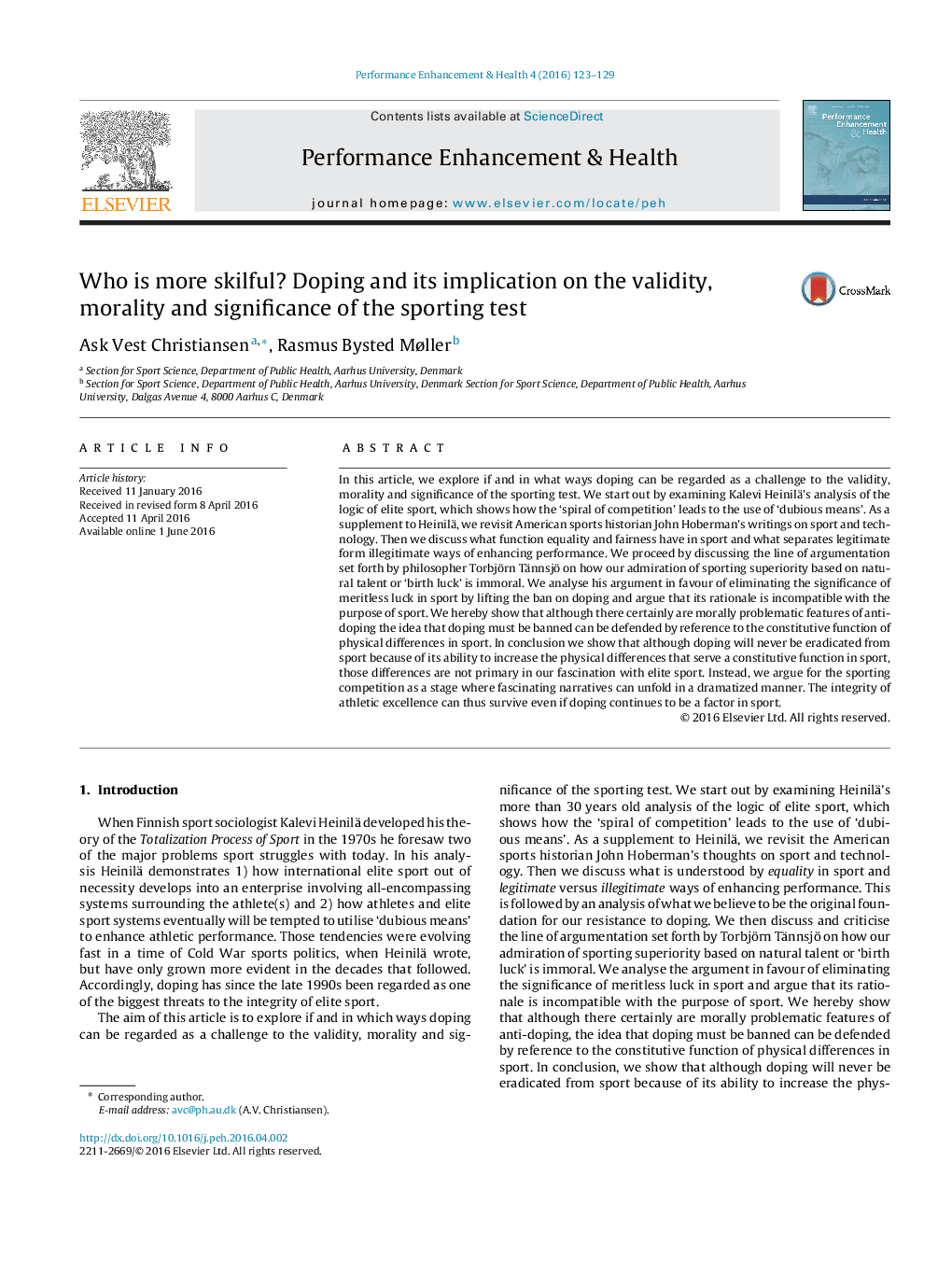| Article ID | Journal | Published Year | Pages | File Type |
|---|---|---|---|---|
| 889545 | Performance Enhancement & Health | 2016 | 7 Pages |
In this article, we explore if and in what ways doping can be regarded as a challenge to the validity, morality and significance of the sporting test. We start out by examining Kalevi Heinilä’s analysis of the logic of elite sport, which shows how the ‘spiral of competition’ leads to the use of ‘dubious means’. As a supplement to Heinilä, we revisit American sports historian John Hoberman’s writings on sport and technology. Then we discuss what function equality and fairness have in sport and what separates legitimate form illegitimate ways of enhancing performance. We proceed by discussing the line of argumentation set forth by philosopher Torbjörn Tännsjö on how our admiration of sporting superiority based on natural talent or ‘birth luck’ is immoral. We analyse his argument in favour of eliminating the significance of meritless luck in sport by lifting the ban on doping and argue that its rationale is incompatible with the purpose of sport. We hereby show that although there certainly are morally problematic features of anti-doping the idea that doping must be banned can be defended by reference to the constitutive function of physical differences in sport. In conclusion we show that although doping will never be eradicated from sport because of its ability to increase the physical differences that serve a constitutive function in sport, those differences are not primary in our fascination with elite sport. Instead, we argue for the sporting competition as a stage where fascinating narratives can unfold in a dramatized manner. The integrity of athletic excellence can thus survive even if doping continues to be a factor in sport.
